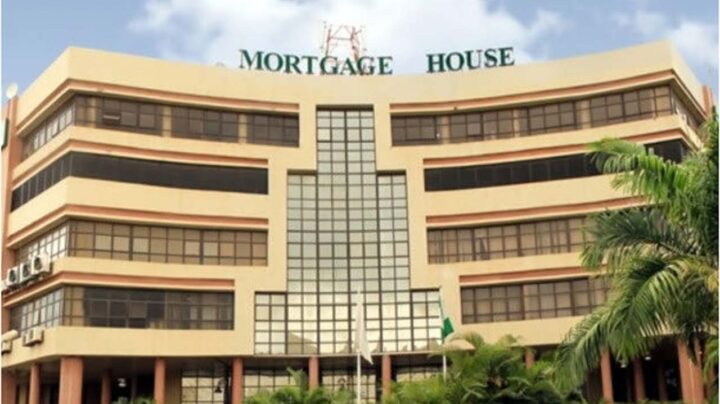The Federal Mortgage Bank of Nigeria (FMBN) has introduced a newly tailored mortgage product designed to extend homeownership opportunities to Nigerians working in the informal sector and members of the diaspora who have traditionally faced barriers in accessing formal financing. The initiative represents a shift in policy towards inclusive housing finance—seeking to provide flexible, accessible, and legally secure mortgage options for groups often excluded from conventional loan schemes.
The product is expected to feature relaxed criteria compared with standard mortgages, such as reduced documentation requirements, flexible repayment timelines, and payment plans denominated in local and foreign currencies. For diaspora Nigerians, the scheme includes options to remit funds from abroad directly to mortgage accounts without penalty, easing participation for homeowners overseas.

FMBN officials explained that many Nigerians, especially traders, artisans, gig-economy workers, and rural entrepreneurs, are unable to meet the stringent income verification and collateral demands of traditional lender products. Similarly, diaspora Nigerians frequently face high interest, limited product choice, and challenges tied to remote documentation. The new offering aims to bridge these gaps by leveraging innovative verification methods, diaspora remittance flows, and adaptable terms.
Recognizing the informal sector as a critical engine of the national economy, FMBN stated that unlocking affordable housing for informal-sector workers would generate demand uptick not just in real estate, but in associated industries such as building materials, artisanship, transport, and furniture manufacturing. The ripple effect is expected to enhance job creation, local enterprise growth, and economic inclusion. Housing affordability is also strongly correlated with improved health, productivity, and quality of life—benefits the bank said are central to its mission.
The diaspora-focused component is equally strategic. With an estimated diaspora population sending billions of dollars in remittances yearly, FMBN aims to channel those inflows into structured mortgage investments, giving return to both the homeowner and the Nigerian economy. Remittance-linked repayment schedules, diaspora-specific interest rates, and digital monitoring tools were highlighted as integral features. The initiative further encourages property investment in designated Federal Housing Authority estates and eligible state-run schemes, easing title documentation and property registry hurdles.
Key to implementation is risk management. FMBN outlined plans to leverage digital tools for borrower assessment—such as mobile-based income inference, peer-group lending data, and remittance history. Security will include property valuation, life/income insurance, and in some cases, group guarantees in communities. Diaspora borrowers will benefit from electronic Know Your Customer (e-KYC) systems, supported by Nigerian missions abroad, to prevent fraud and ensure identity traceability. The Bank emphasized that these mechanisms will support a scalable and responsible lending framework that preserves repayment discipline.
Cost structure is designed to remain affordable. While exact interest rates vary depending on borrower profile and currency, FMBN plans to subsidize part of the cost through its affordable housing fund, retain low processing fees, and cap upfront charges. Informal-sector participants may also benefit from extended amortisation periods—up to 25 years—making monthly payments easier to manage. Prepayment and refinancing flexibility are expected components, enabling borrowers to adapt to changing income patterns.
The Bank also signalled an implementation partnership model. It plans to collaborate with microfinance banks, cooperative societies, diaspora associations, gig-economy platforms, and trade unions to publicise the mortgage products and simplify enrollment access. Training sessions, financial literacy workshops, and supportive documentation clinics are planned for target communities. The approach is intended to build trust and familiarity with formal mortgage products among traditionally underserved groups.
Housing advocacy organizations and social sector commentators welcomed the move, noting it addresses a long-standing affordability gap. They argue that homeownership should not be limited to formal-sector salaried workers alone—and that many talented Nigerians outside the civil service deserve equal access to wealth-building tools like property equity. Community leaders observed that even modest housing ownership can reduce rent pressure, encourage savings, and improve housing security, especially in peri-urban and rural areas.
Challenges remain: informal earnings are often volatile, enforcement of mortgage terms can be difficult, and affordable housing supply gaps persist. To address these, FMBN is working with real estate developers to pilot affordable housing units and with states to ensure pre-approved technical feasibility of properties. The Bank also aims to bolster its reserve funds to cover potential foreclosure exposure and committed to ongoing monitoring of default rates and borrower satisfaction metrics.
Financial analysts cautioned that success will depend on careful category screening and contingency frameworks. Risk profiling models must be sensitive to irregular incomes. They recommended indexing diaspora loans to basket currencies, offering hedged repayment options, and ensuring property collateral remains sellable and legally sound. Experts also urged transparent publication of performance data to enhance public trust and investor interest.
Nevertheless, the mortgage scheme is expected to unlock latent demand. FMBN projects that within two years the product could extend housing credit to at least 50,000 informal-sector households and diaspora residents, potentially injecting several hundred billion naira into housing and related value chains. If effectively implemented, the model could become a blueprint for other countries seeking to marry diaspora remittances with domestic development finance.
In enacting this initiative, FMBN has also signalled alignment with Sustainable Development Goals related to affordable housing and urban resilience. The bank stressed that inclusive housing finance strengthens economic participation, gender equity, and social stability—goals pursued across government planning frameworks.
Looking ahead, FMBN plans to scale this mortgage product by refining underwriting algorithms, expanding partnerships, and launching a digital mortgage portal. The Bank also intends to gather feedback from early adopters to streamline processes and reduce friction. Evaluation metrics, including application-to-disbursement time, default rates, and borrower satisfaction, are set to guide future improvements—and potential geographic expansion to other states.
If the program succeeds, it promises to shift Nigeria’s housing finance system toward inclusivity and innovation—offering tens of thousands of Nigerians a legitimate pathway to homeownership and embedding diaspora capital deeper into the national property market.
Support InfoStride News' Credible Journalism: Only credible journalism can guarantee a fair, accountable and transparent society, including democracy and government. It involves a lot of efforts and money. We need your support. Click here to Donate
